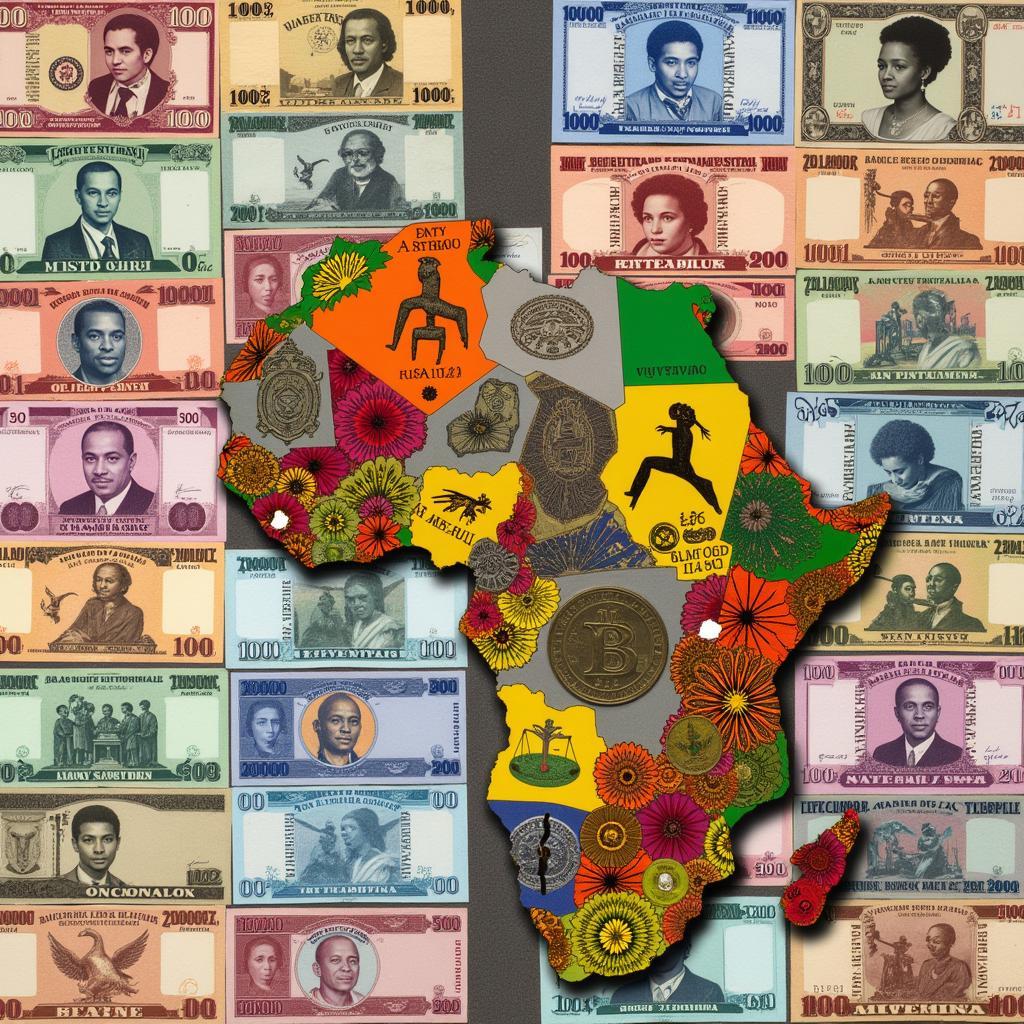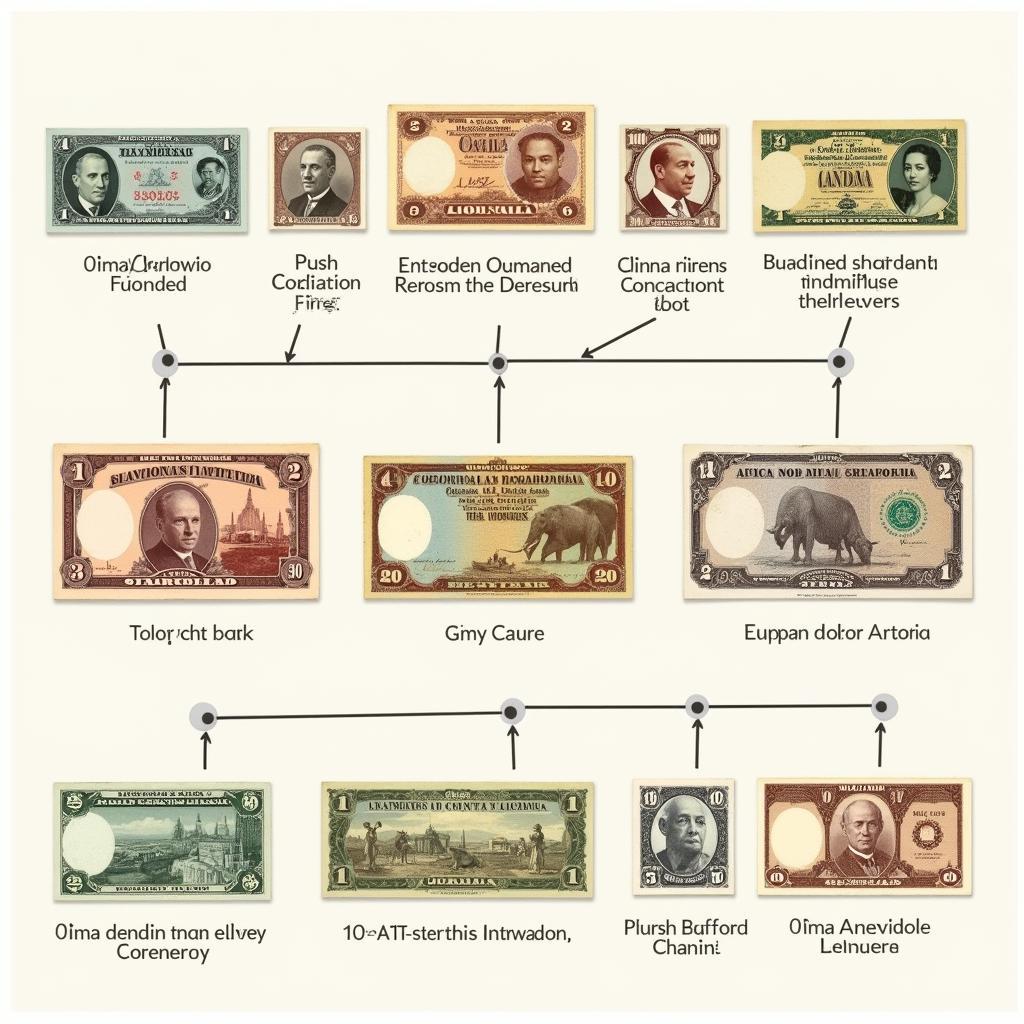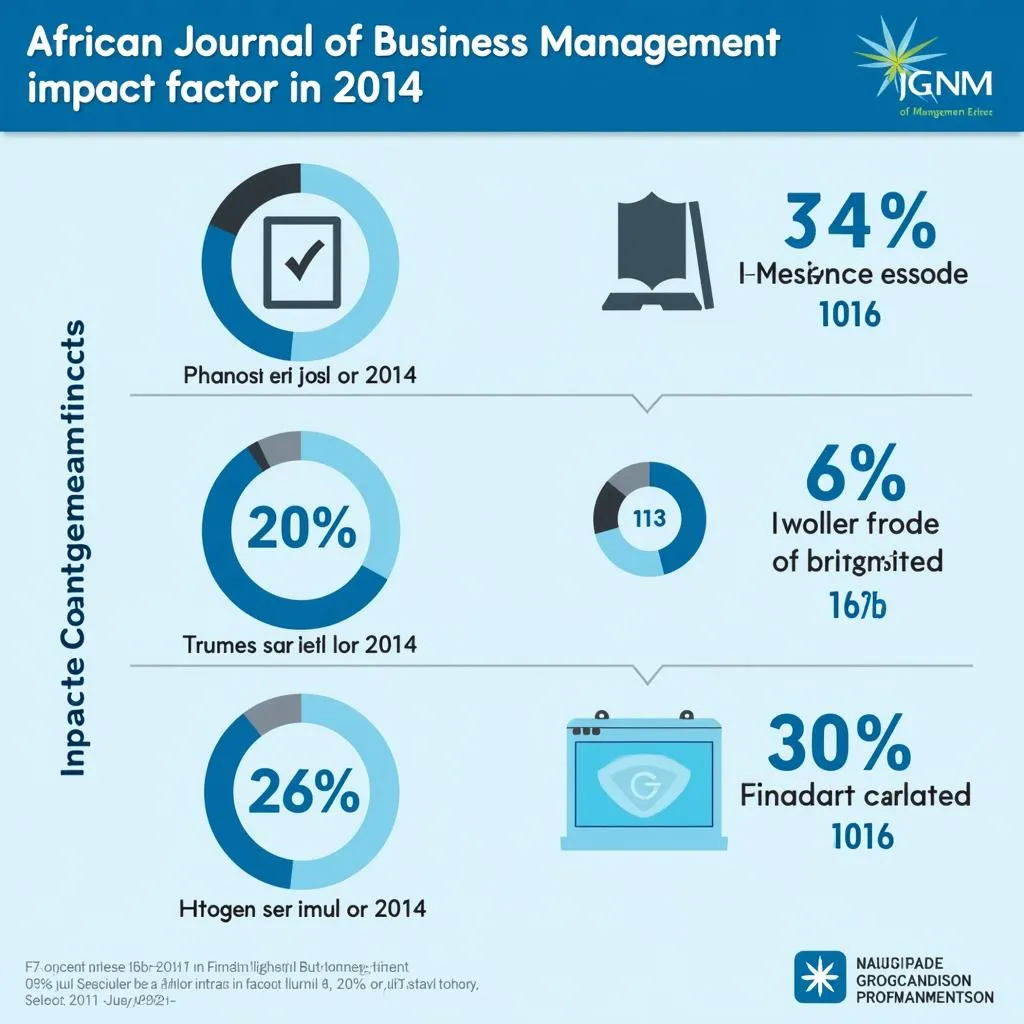A Comprehensive Guide to African Currency
African Currency is a diverse and fascinating subject, reflecting the continent’s rich history, cultural heritage, and economic evolution. From the ancient trade routes to the modern financial landscape, the currencies of Africa tell a compelling story of resilience, adaptation, and growth.
 A Variety of African Currency Notes and Coins
A Variety of African Currency Notes and Coins
A History of Money in Africa
Long before the introduction of coinage, various forms of currency were used across the African continent. These ranged from practical commodities like salt, beads, and livestock to more symbolic items such as cowrie shells, which held significant cultural and spiritual value. For instance, in West Africa, cowrie shells served as a common medium of exchange for centuries, facilitating trade networks that stretched across the Sahara Desert.
The arrival of European powers in the colonial era brought about significant changes to African monetary systems. European currencies were introduced and often circulated alongside existing traditional forms of money. This period also saw the establishment of colonial banks and the gradual integration of African economies into global financial structures.
Independence and the Rise of National Currencies
The wave of independence movements that swept across Africa in the mid-20th century led to the establishment of new nation-states eager to assert their sovereignty and forge their own economic paths. This period witnessed the birth of numerous national currencies, each carrying its own unique name, design, and symbolism.
 Evolution of African Currencies from Colonial to Modern Times
Evolution of African Currencies from Colonial to Modern Times
Many newly independent African nations opted to retain ties with their former colonial powers, at least initially, in terms of their currency arrangements. This often involved maintaining pegged exchange rates or participating in currency zones like the CFA franc zone, which continues to exist today.
The Diversity of African Currencies
Today, there are over 50 independent countries in Africa, each with its own currency. This diversity is reflected not only in the names and designs of these currencies but also in their values and exchange rates.
Some African currencies are considered relatively stable and are readily traded on international markets, while others have faced challenges related to inflation, volatility, and limited convertibility. These economic realities are often intertwined with factors such as political stability, levels of economic development, and global market forces.
The Future of African Currency
The African Continental Free Trade Area (AfCFTA), which came into effect in 2021, aims to create a single market for goods and services across the continent. This ambitious project has the potential to significantly boost intra-African trade and investment, leading to greater economic integration.
 Digital Innovations and the Future of African Currencies
Digital Innovations and the Future of African Currencies
The AfCFTA agreement also includes provisions for greater monetary cooperation among member states. While the creation of a single African currency remains a long-term goal, the AfCFTA represents a significant step towards greater economic and monetary integration on the continent.
FAQs about African Currency
1. What is the most widely used currency in Africa?
The most widely used currency in Africa is the CFA franc, which is used by 14 countries in West and Central Africa.
2. What is the strongest currency in Africa?
The strongest currency in Africa is currently the Libyan dinar, followed by the Tunisian dinar and the Ghanaian cedi.
3. How many countries in Africa use the euro?
There are no countries in mainland Africa that use the euro as their official currency. However, some African island nations, such as Mayotte and Réunion, which are overseas territories of France, do use the euro.
4. What is the impact of digital currencies on Africa?
Digital currencies, such as Bitcoin and mobile money platforms like M-Pesa, are gaining popularity in Africa, offering potential solutions for financial inclusion and cross-border transactions.
5. What are some of the challenges facing African currencies?
Some challenges facing African currencies include exchange rate volatility, inflation, and limited access to foreign exchange.
Need More Information on African Currency?
For more insights into specific aspects of African currencies, explore these related articles:
- African Currency Notes Images
- 1 African Currency in Indian Rupees
- African Currency Masala
- African Currency Exchange Rate
- African Currency SKHS
We’re Here to Help!
Do you have any further questions about African currency or other aspects of African Life? Don’t hesitate to reach out to our team of experts. You can contact us via:
- Phone: +255768904061
- Email: [email protected]
Or visit us at our office:
- Address: Mbarali DC Mawindi, Kangaga, Tanzania
Our dedicated customer support team is available 24/7 to assist you with any inquiries you may have.




